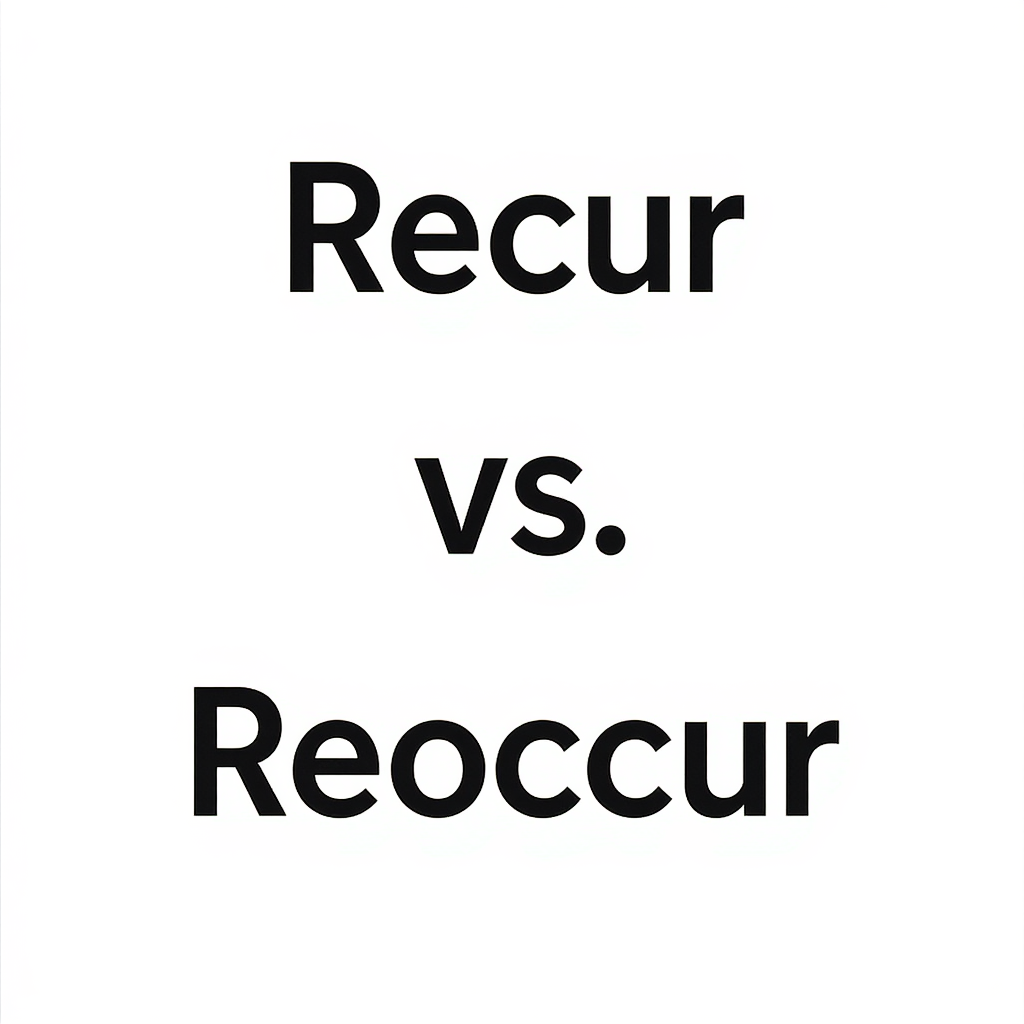"Recur" Vs "Reoccur" - What’s the Difference?

At first glance, recur and reoccur look like they mean the same thing: to happen again. But English often gives us two words that feel identical until you look closer.
Today, Midoo AI will explain the subtle difference between recur and reoccur with simple rules, examples, and memory tips so you’ll never mix them up again.
What Does “Recur” Mean?
Recur means something happens again, especially in a repeated or regular way. It’s often used for events, problems, or patterns that keep coming back.
Examples of “Recur”:
- Headaches may recur if you don’t rest enough.
- The same argument tends to recur between them.
- This festival will recur every spring.
- History can sometimes recur when lessons are ignored.
- Nightmares about the accident still recur.
👉 If it’s something that comes back again and again, usually in a pattern, use recur.
What Does “Reoccur” Mean?
Reoccur also means “to happen again,” but it usually refers to something that happens again just once or a few times — not necessarily in a pattern.
Examples of “Reoccur”:
- The same mistake might reoccur if we’re not careful.
- A power outage could reoccur tomorrow.
- Problems like this sometimes reoccur after an update.
- The leak may reoccur during heavy rain.
- That type of issue shouldn’t reoccur once it’s fixed.
👉 If it happens again, but not on a repeating schedule, use reoccur.
Key Difference in Simple Words
- Recur = happens again and again (often regularly).
- Reoccur = happens again, but not necessarily regularly.
Think:
- Recur = repeat.
- Reoccur = happen again.
Quick Comparison Table
Loading Sheets. Please try again after it's finished.
Memory Tricks
- Recur looks like “re + current” → something that keeps coming back regularly.
- Reoccur = “occur again” → a one-time repeat.
- Or think: “Recurring” payments happen again and again, while a problem that “reoccurs” just pops up again.
Common Mistakes
❌ The same holiday will reoccur every year. ✔️ The same holiday will recur every year. (because it’s regular).
❌ The pain tends to recur once in a while. ✔️ The pain may reoccur once in a while. (occasional, not patterned).
FAQs
Do “recur” and “reoccur” mean the exact same thing?
Not quite. Both mean “happen again,” but “recur” suggests a pattern or repetition, while “reoccur” suggests something happening again without a pattern.
Which is more common in everyday English?
Recur is much more common, especially in medical, historical, or general contexts.
Is “reoccur” wrong to use?
No, it’s not wrong — it’s just less common. Use it when you mean something happens again but not regularly.
Can I use “recur” in formal writing?
Yes, and it’s actually preferred in academic and professional contexts. For example: “Symptoms may recur after treatment.”
How can I decide quickly between the two?
Ask: Is this something that keeps happening again and again? If yes → recur. If no, just happened again once → reoccur.
Final Thoughts
Both recur and reoccur deal with things happening again, but the nuance matters:
- Recur = repeated, patterned, ongoing.
- Reoccur = happens again, but not necessarily in a pattern.
Midoo AI suggests this practice: write two short sentences — one about a problem that recurs regularly and one about a problem that only reoccurs once. That way, you’ll feel the difference naturally.